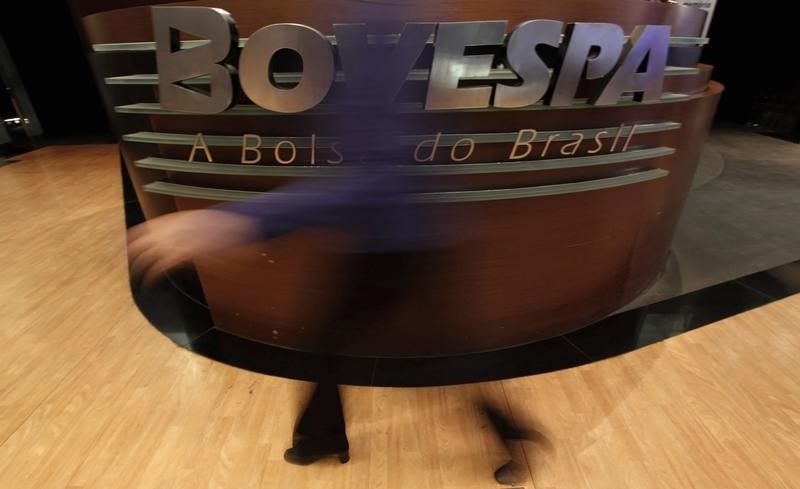This post was originally published on this site

Goldman Sachs Group Inc (NYSE:GS)., Bank of America Corp (NYSE:BAC). and Lazard (NYSE:LAZ) Asset Management expect a boost for developing equities as investors capitalize on cheap valuations once vaccine rollouts pick up, helping the global economy to recover from the pandemic. South Africa, Russia and Brazil are among markets set to benefit, even as China’s regulatory crackdown continues to weigh on Asian equities.
In the decade following the global financial crisis, MSCI Inc.’s emerging-market stock index gained just 8%, while the benchmark for developed nations more than doubled. That’s partly due to the slowdown of Chinese economic growth from above 10% in 2010 to around 6% by the end of the decade, resulting in a decline for commodity prices and weak earnings growth.
Then came the pandemic. While stocks across the board initially recovered strongly from March 2020 lows, those in emerging markets have fallen behind again. MSCI’s developed-market stock index has returned about 15% since the beginning of 2021, while its emerging-market counterpart fell more than 4%.
That may change in coming months as the global economic recovery gathers steam, inflation picks up, and raw materials rebound from their worst weekly performance since June, driven by infrastructure projects from China to the U.S.
There are signs the turn has already started. Capital flows into emerging-market equities in Eastern Europe, the Middle East and Africa accelerated since March — beating flows into bond funds by the most since 2014 — as investors rotated into value stocks, according to BofA.
“We expect this trend to continue given supportive macro drivers and equity valuations,” BofA cross-asset strategist Jure Jeric said in a note. While the energy sector has been the biggest beneficiary thus far, supporting Russian equities, there’s scope for increased inflows into other value sectors including financials and materials, with South Africa a receiving a boost from the latter, he said.
Meanwhile, Goldman Sachs is tactically “quite upbeat” on developing stocks, according to Caesar Maasry, head of the emerging-markets cross-asset strategy team, which favors equities and currencies in Brazil, Mexico, and Russia. “We generally find a ‘return to normalcy’ not priced into the market.”
Franklin Templeton Investments flags technology as a driver of emerging-market stock gains, benefiting countries like South Korea and Taiwan which are rebounding on Monday after tumbling 3.5% and 3.8% respectively last week. Those two nations have managed the pandemic better than most, and their tech-dominated markets made them an attractive investment during the crisis, said Andrew Ness, a portfolio manager at Franklin Templeton. The firm remains cautious on emerging-market equities but has turned more optimistic due to low valuations, according to Gene Podkamine, head of research at Franklin Templeton Investment Solutions.
While GDP growth in emerging markets has lagged that in developed nations in 2021, that may start changing as soon as the fourth quarter as activity starts to slow in developed economies and amid higher commodity prices, according to Lazard.
“Given the position many emerging-markets companies hold in the global supply chain, a pick-up in capital spending around the world is a very good signal for emerging markets equities overall,” Lazard strategists wrote in a report. That holds particularly for “growth-sensitive stocks, names that benefit from higher commodities prices, and those that produce goods, rather than services,” they said.
Over the last decade, the outperformance of U.S. stocks had a lot to do with the plush liquidity from the Fed — money that mostly failed to reach emerging markets. When the liquidity is taken away, stocks around the world may suffer a temporary shock, but the U.S. would lose its edge. That supports the idea that emerging-market stocks can outperform in a post-stimulus world.
That’s not to say there aren’t any key fundamental risks lying ahead for emerging-market stocks. Beijing’s regulatory crackdown on technology companies has been a factor in the underperformance of MSCI’s EM index this year, as Chinese equities account for almost one-third of the gauge.
While regulatory reforms could continue to depress Chinese stocks, it’s unlikely to spill over into the wider emerging-market complex, according to Goldman Sachs. Concerns about China’s economic growth, however, are warranted, the lender said in an Aug. 18 report. Developed nations outside of North Asia will continue to outperform the MSCI EM index, making them a “higher-conviction” holding, it said.
Developing-nation equities also proved their sensitivity to the prospects of tapering after they slumped along with global stocks after the Federal Reserve signaled that it could start paring stimulus from later this year. The Fed’s minutes also led to a dip in commodity prices as they boosted the dollar on Thursday, further pressuring developing-nation equities.
Not everyone is fully sold that the worst has passed. The BlackRock (NYSE:BLK) Investment Institute downgraded emerging-market equities to neutral in July over uncertainty about the U.S. dollar outlook and tighter policy.
‘Permanent Scarring’
“We believe that EM growth is more at risk of permanent scarring over the long term due to slow vaccination rates and limited policy space,” said Wei Li, the firm’s global chief investment strategist, adding that the equity risk premium is below the historical average for developing-nations.
Others are buying into the growth story, but warn that it may take time. State Street (NYSE:STT) Global Markets multi-asset strategist Daniel Gerard thinks emerging-market headwinds, like uncertainty around the Chinese regulatory environment, will prevent their equities from outperforming in the medium-term. Over the long haul, he sees “tremendous opportunities” as countries reduce reliance on physical infrastructure in favor of technology.
“Once vaccination rates improve in emerging markets, we expect not only for EM equities to outperform EM debt, but EM equities to catch up to developed-market equities,” Gerard said. “Don’t discount the EM consumer when the pandemic’s grip on consumer activity fades.”
South Korea in Focus
What Else to Watch
(Updates stock-index moves in fourth paragraph)
©2021 Bloomberg L.P.

